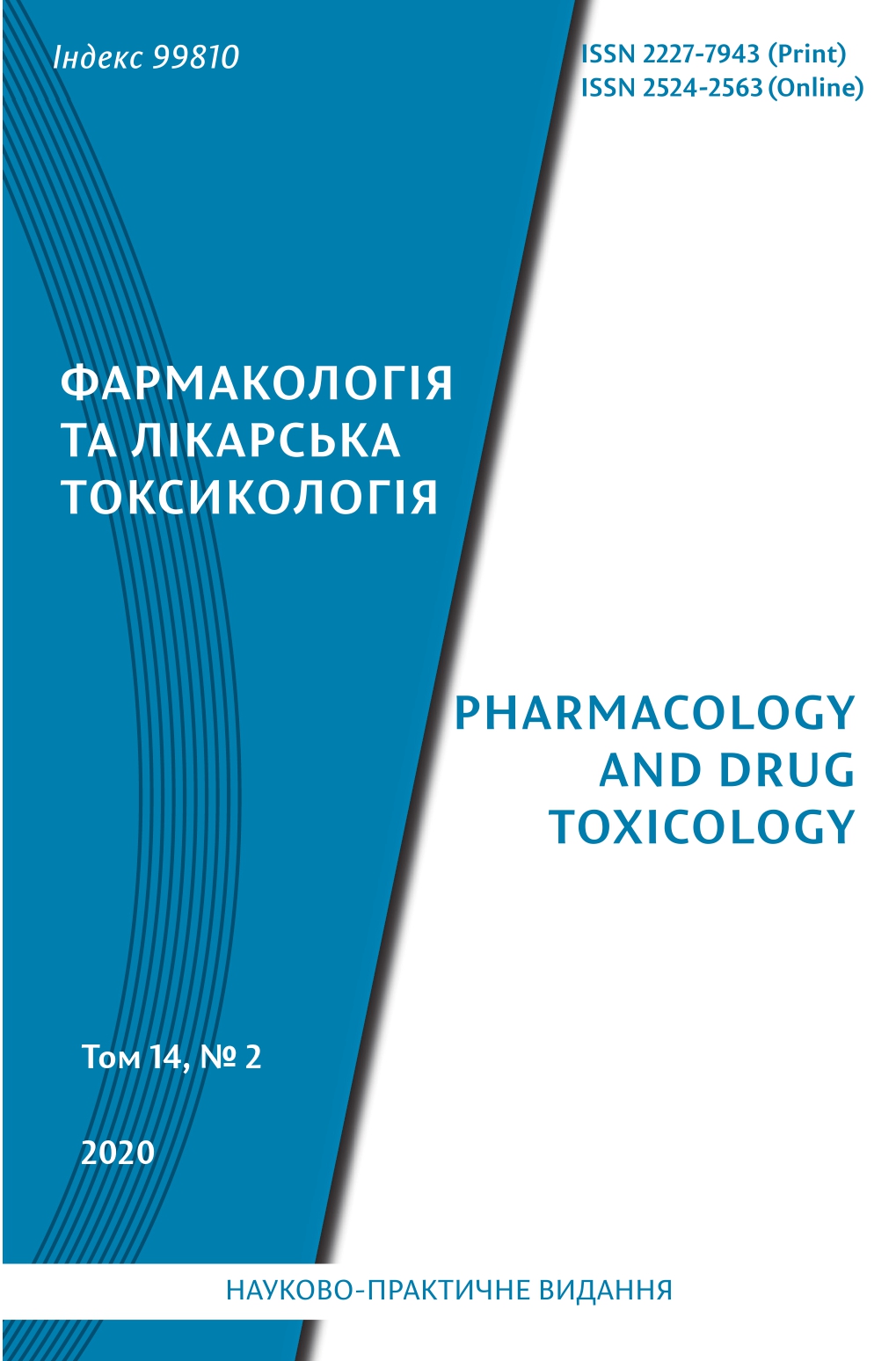Abstract
According to WHO, there are more than 2 billion people in the world using alcohol, and 76,3 million are suffering from alcohol – related diseases, in particular, pathology of the liver. Alcoholic pathology of the liver is manifested in 4 nosological forms: alcoholic steatosis, alcoholic hepatitis, alcoholic liver fibrosis and alcoholic liver cirrhosis. One of the components of liver damage is cholestatic syndrome, due to a violation of the bile formation and outflow into the intestine, the accumulation of its components in the liver and blood. It is manifested by an increase of alkaline phosphatase (ALP), gamma-glutamyl transpeptidase (γ-GTP), transaminases activities, the levels of cholesterol, bilirubin, bile acids, etc. in blood. To correct cholestasis syndrome in alcoholic liver diseases and other liver damages, plant and synthetic hepatoprotective agents with choleretic activity are often used. The aim of the study was to investigate the effect Acorus calamus leaf extract (Acorus calamus L.) on bile formation, bile secretion and cholestasis on the model of ethanol-tetrachloromethane hepatitis in rat. The dealcoholized Acorus calamus leaf extract was obtained at the Department of Botany of the NFaU. The extract is a dark brown liquid substance with a strong spicy specific odor. The standardization of the extract was carried out by the content of flavonoids sum in terms of hyperoside. The anticholestic and choleretic action of the dealcoholized Acorus calamus leaf extract was studied using the model of ethanoltetrachloromethane hepatitis in rats. The dealcoholized Acorus calamus leaf extract and comparison preparations were administered 1 hour before the introduction of pathogenic agents and 2 hours after (treatment and prophylactic regimen). 72 hours after the last use of toxicants in thiopental sodium anesthesia (intraperitoneal, 60 mg/kg), the bile and bile excreton were examined in rats by assessing the rate of bile secretion and its quantitative components: bile acids and cholesterol content. The anticholestatic properties of the dealcoholized Acorus calamus leaf extract and comparison drugs were evaluated by the serum content of indirect bilirubin, direct bilirubin, ALP and γ-GTP activities. It has been established that the use of dealcoholized Acorus calamus leaf extract in the treatment and prophylactic mode of hepatitis in rat significantly reduces the intensity of the cholestasis process, improves bile excretory functions of the liver. The anticholestatic properties of the dealcoholized extract of Acorus calamus leaf extract are confirmed by a significant decrease in the level of indirect and direct bilirubin, a decrease in the activity of ALP and γ-GTP. In terms of normalizing the rate of bile secretion, bile acids and cholesterol content in bile, reducing the processes of cholestasis Acorus calamus leaf extract was not inferior to comparison drugs. The data obtained indicate the expediency for further in-depth studies of dealcoholized Acorus calamus leaf extract for creating effective hepatoprotectors.

